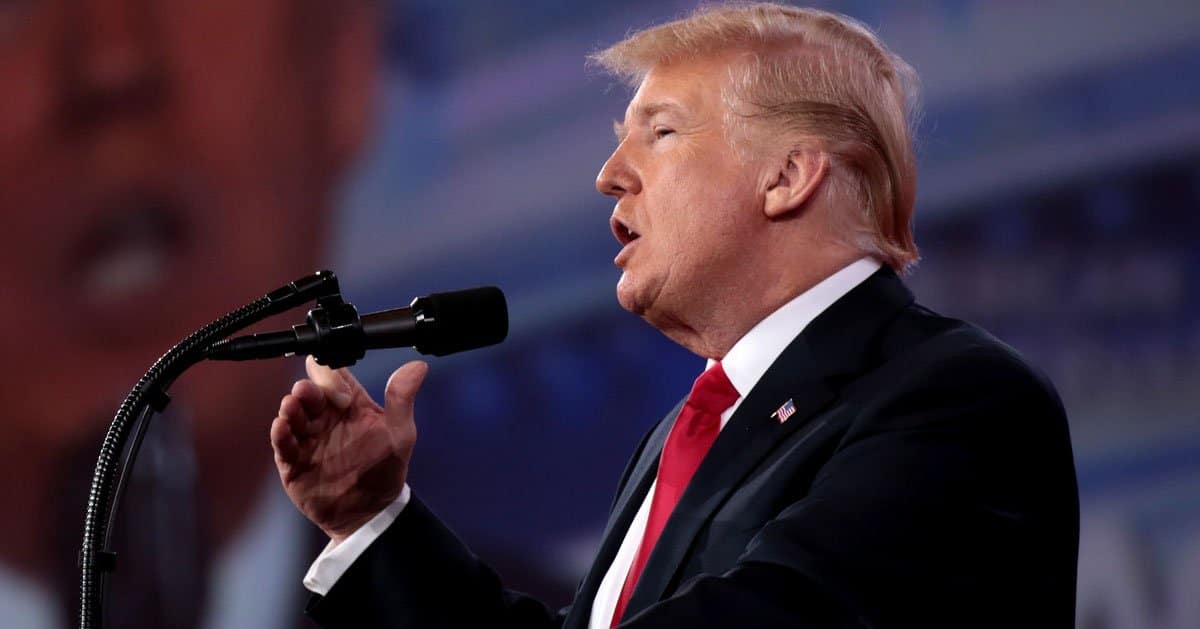






Jaguar Land Rover’s bold rebrand just backfired spectacularly. The company announced it’s slashing 500 management jobs as sales plummet, a move tied to a controversial ad campaign and a logo redesign that’s drawn more jeers than cheers.
Breitbart reported that Jaguar, once a symbol of British automotive prestige, is grappling with U.S. tariffs and the planned phase-out of older Jaguar models. This shake-up has sparked debate about whether JLR’s pivot to a progressive image was a misstep.
In November 2024, JLR launched an ad campaign that ditched its iconic sports cars for bright colors and catwalk models.
The campaign, meant to signal a shift to a fully electric, ultra-luxury brand, was met with widespread mockery. Critics argued it alienated loyal customers who cherished Jaguar’s sleek, powerful heritage while pushing away prospective buyers looking to tap into that heritage for themselves.
The backlash didn’t stop at the ads. JLR replaced its beloved big cat badge with a geometric ‘J’ design, which drew fierce criticism and outright laughter from fans and analysts alike. This move seemed to symbolize a broader disconnect between the company’s new direction and its traditional base.
“It wasn’t that long ago that JLR was reporting bumper profits – £2.5bn profit to the year ending in March – which was its best results in a decade,” said Professor David Bailey of the Birmingham Business School on the BBC’s Wake Up to Money programme. That £2.5 billion profit, JLR’s strongest in ten years, makes the current slump all the more jarring. Chasing a woke aesthetic seems to have cost more than it gained.
By early 2025, JLR’s sales began to slide, particularly in the U.S. market. The decline was partly due to a 10 percent tariff on British cars imposed by U.S. President Donald Trump. Professor Bailey noted on the BBC that these tariffs “play a big role in this,” highlighting how global politics can kneecap even the most ambitious corporate plans.
The tariffs weren’t the only issue. JLR’s decision to wind down older Jaguar models further strained sales, as the company bet heavily on its electric vehicle pivot. This gamble, paired with the rebrand’s rejection, left JLR scrambling to cut costs.
To manage the layoffs, JLR introduced a voluntary redundancy scheme. The company described the job cuts as “normal business practice,” but slashing 500 management roles—roughly 1.5 percent of its British workforce—hardly feels routine to those affected.
It’s a stark reminder that corporate missteps hit workers hardest. The rebrand’s splashy debut continued at the Goodwood Festival of Speed on July 10, 2025, in Chichester, England.
JLR unveiled the Type 00 concept car, a large, pink grand tourer that raised eyebrows more than excitement. The car’s bold aesthetic doubled down on the company’s polarizing new image.
The Type 00’s reveal didn’t win back skeptical customers. Its garish design seemed to embody everything critics disliked about JLR’s new direction—style over substance, flash over function. For a brand once synonymous with understated elegance, this felt like a betrayal.
JLR’s leadership likely hoped the rebrand would position them as forward-thinking pioneers. Instead, it’s sparked a backlash that’s cost jobs and market share. Conservatives might argue this proves the peril of prioritizing progressive ideals over customer loyalty.
The sales drop in the three months to June 2025 was a wake-up call. JLR’s pivot to electric vehicles, while ambitious, ignored the immediate demand for its classic models. Betting the farm on a niche luxury market was a bold move, but boldness doesn’t always pay off.
The job cuts, though framed as voluntary, signal deeper troubles. Management roles are often the first to go when companies need to trim fat, but 500 is no small number. Workers are paying the price for a vision that misread the market.
JLR’s £2.5 billion profit in 2024 now feels like a distant memory. The company’s best financial performance in a decade couldn’t shield it from the fallout of a botched rebrand and external pressures like tariffs. Success in business requires adaptability, not ideology.

